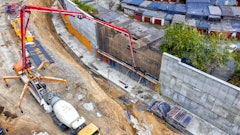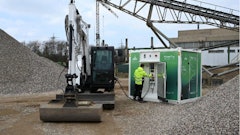Everyone is struggling today. Headlines everywhere talk of cutting costs, laying workers off and closing doors. One place employers could find money but inexplicably are ignoring is workers compensation. How? Post accident drug testing and utilizing the specific state rules that apply for your financial benefit.
In virtually every state you can challenge a workers compensation claim if the employee was intoxicated at the time of the accident, and if that intoxication "contributed" to the cause of the accident, and if that intoxication "contributed" to the cause of the accident.
Here's what we know:
- 72% of current admitted drug users are employed.1
- Up to 40 % of industrial fatalities and 47 percent of industrial injuries can be linked to alcohol consumption and alcoholism.2
- 19% of those killed on the job had drugs and/or alcohol present in postmortem toxicology report.3
- Employers with drug testing have experienced a 51% reduction in workplace injury rates within two years of implementing a drug-testing program.4 A recent study showed that the average company sampled that has drug testing in place experienced an 11.41% reduction in workers' compensation experience-rating modification factor. At the same time, companies that did not implement drug-testing programs saw no decline in their workers' compensation experience-rating modification factor.5
- 15 states offer workers compensation financial incentives (premium discounts/presumptive denial of benefits) to employers with drug-free workplace programs.
- NCCI (National Council on Compensation Insurance - Boca Raton, FL) estimates that 38%-50% of all workers compensation claims involve a drug or alcohol issue.
Think about that last statistic for a second - 38%-50% of all workers compensation claims could be challenged! Have you challenged any? That's where the cost savings exist. But you must know the specific state rules that apply.
The Intoxication Defense:
Drug and alcohol use in the workplace is a workers' compensation issue. In virtually every state, you could defeat a workers' compensation claim if the employee was intoxicated and that intoxication contributed to the cause of the accident. You could thinking "I've been told it can't be done."
Who told you that? In a recent case, when an employer in Iowa wanted to challenge a $1.5 million workers' compensation claim he was told that it couldn't be challenged. Yet, they did. That employer was self-insured to $350,000. Paying this claim would have put them out of business.
It was stopped because the employer did their research and discovered that the Iowa Supreme Court had, just months earlier, affirmed the denial of benefits to a claimant that was positive for alcohol at 0.09.6 The claimant in their case was positive for cocaine and alcohol at 0.289.
How do you do it?
No one would tell you that every positive drug or alcohol test will result in a denial of a claim. But, that's where you start. If you're not doing post-accident testing, you're not taking advantage of the potential cost savings that are are available to you. You have to conduct post-accident drug and alcohol tests and you must conduct those tests in accordance with the state rules that apply.
An injury occurs. A drug test is performed and is reported back positive. Based upon a series of factors, you decide if that claim should be denied. If the decision is to challenge, then spring into action. It's about Cost Reduction!
William J. Judge, JD, LL.M., is Director of Research for Park-Dickens Group, visit them online at www.fightreadynow.com. For more information, please email Park-Dickens Group at [email protected] or contact them toll free at 866-328-7487.
1Source: http://oas.samhsa.gov/nhsda/2k3nsduh/2k3Results.htm#ch2
2http://www.dol.gov/asp/programs/drugs/workingpartners/stats/wi.asp
3http://www.bls.gov/opub/cwc/2001/spring/art3full.pdf
4http://www.news.cornell.edu/Chronicle/00/6.29.00/drug-testing.html
5http://www.news.cornell.edu/Chronicle/00/6.29.00/drug-testing.html
6Garcia v. Naylor Concrete Co. and National American Insurance, 650 N.W.2d 87, (Ia. S. Ct., Number: 88 / 01-0341 (7/17/02)).


























